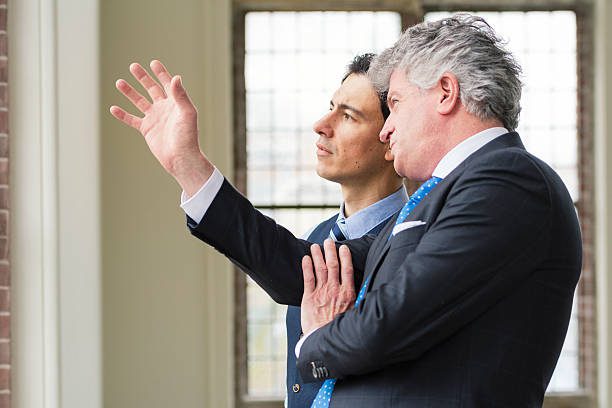
| Executive Coach Key Stats | |
|---|---|
| Education | 0-1 Year |
| Job Outlook | 13% |
An Executive Coach is an individual who works with high level professionals looking to improve their individual growth and enhance their careers.
These professionals typically work for themselves and offer their consulting to services to individual clients.
They will help their clients focus on their personal and professional development that aids in accomplishing professionals goals.
Individuals who want to become an Executive Coach will benefit from working on their educational background, strengthen some personal characteristics and become experienced in coaching in order to succeed in this profession.
Table of Contents
Education Requirements to Become an Executive Coach
Individuals who want to become an Executive Coach will need to work on completing a postsecondary degree, gain some experience in coaching and complete an executive coaching certification in order to enter this profession.
There are certification programs that provide a designation in executive coaching.
Individuals will need to meet certification requirements in order to apply for a certification program.
Executive Coaching programs are typically at the graduate level.
Therefore individuals who want to become an Executive Coach will need to complete a minimum of a bachelor’s degree in order to enter this profession.
Recommended degrees include business, psychology or a closely related field.
In addition, individuals will need a minimum of five years of experience in these fields to be accepted into a certification program.
The application process for an Executive Coaching certification program may also include writing a personal essay to include with the application plus two to three personal reference letters from individuals with knowledge of the applicant’s professional background.
Individuals are encouraged to work on their communication skills, both written and oral, to apply for programs.
Some programs may take 12 credit hours, or about a semester’s worth of courses.
Certification programs will prepare individuals to become an Executive Coach by focusing on a curriculum that typically includes the following courses:
- The theories and principles of executive coaching
- The skills and techniques of executive coaching
- Executive coaching ethics and professional principles
- Executive coaching practices
You may visit UC Berkeley to learn about a typical Executive Coaching certification program.
Executive Coach Job Description
As their title implies, Executive Coaches meet individually with high level and successful clients such as CEOs and other Executives to help them take their professional career to the next level.
Executive Coaches have the skills and ability to provide consulting on professional matters to their clients.
Many of the professionals an Executive Coach works with also earn high wages with many professionals earning more than $150,000 per year.
Many clients will need several sessions in order to develop a relationship to learn a client’s strongest skills, areas of work that their clients enjoy the most and how to project that when looking for a new career.
Executive Coaches also help their clients with professional and personal development.
Executive Coach Salary and Career Path
There are no exact salary or wage figures for Executive Coaches.
Many of these individuals are self-employed while some work for consulting firms.
Individuals who are self-employed typically charge by the hour and some are known to charge $125 to $500 per hour.
An exact yearly salary will depend on the number of clients and appointment Executive Coaches have.
Individuals who are self-employed also have to pay out of pocket expenses for things such as health insurance, transportation and certification that reflect upon their take home pay.
Executive Coaches who work for a consulting firm typically have a consistent salary and benefits such as retirement and health insurance.
There is also no data as far as growth for this profession.
However, as the world grows smaller, it creates more competition and individuals who are willing to improve their skills and work with an Executive Coach will have an advantage on overcoming obstacles coming from stiff competition.
Executive Coaches are experienced in working with high level professionals who are looking to advance their professional careers.
These professionals use an array of skills in order to market themselves to their clients, help them with professional and personal development and assist clients in making career changes.
This career may be a perfect fit for individuals who are goal oriented and like working with other individuals.
![]() The below information is based on the 2023 BLS national averages.
The below information is based on the 2023 BLS national averages.
National Average Salary
$58,700Average Salary by State
| State | Avg. Annual Salary |
|---|---|
| Alabama | $54,840 |
| Alaska | $46,510 |
| Arizona | $62,240 |
| Arkansas | $48,020 |
| California | $65,560 |
| Colorado | $67,710 |
| Connecticut | $61,900 |
| Delaware | $60,550 |
| District of Columbia | $112,280 |
| Florida | $61,450 |
| Georgia | $52,270 |
| Hawaii | $55,440 |
| Idaho | $53,840 |
| Illinois | $55,630 |
| Indiana | $45,870 |
| Iowa | $49,660 |
| Kansas | $59,120 |
| Kentucky | $61,190 |
| Louisiana | $71,480 |
| Maine | $56,480 |
| Maryland | $67,520 |
| Massachusetts | $72,420 |
| Michigan | $59,190 |
| Minnesota | $60,890 |
| Mississippi | $61,320 |
| Missouri | $52,050 |
| Montana | $47,990 |
| Nebraska | $57,780 |
| Nevada | $53,240 |
| New Hampshire | $51,320 |
| New Jersey | $81,130 |
| New Mexico | $48,110 |
| New York | $61,230 |
| North Carolina | $60,250 |
| North Dakota | $44,660 |
| Ohio | $50,040 |
| Oklahoma | $51,700 |
| Oregon | $54,560 |
| Pennsylvania | $59,240 |
| Rhode Island | $66,490 |
| South Carolina | $59,590 |
| South Dakota | $44,250 |
| Tennessee | $49,420 |
| Texas | $52,910 |
| Utah | $51,530 |
| Vermont | $62,490 |
| Virginia | $64,140 |
| Washington | $55,910 |
| West Virginia | $68,240 |
| Wisconsin | $46,430 |
| Wyoming | $62,530 |
| Puerto Rico | $37,640 |
The top earning state in the field is District of Columbia, where the average salary is $112,280.
These are the top 5 highest-paying states in the field:
* Employment conditions in your area may vary.
Frequently Asked Questions
What does an executive coach do?
An executive coach is someone who helps his or her clients maximize their full potential.
Executive coaches work with clients that want to improve their career, business or personal circumstances.
The typical responsibilities of an executive coach usually include improving the client’s ability to influence others; increasing employee engagement; improving leadership skills and effectiveness; creating higher levels of self-confidence; increasing self-awareness; improving relationships in business, and so on.
An executive coach should be able to give the client enough space to create, they don’t judge the client; the main aim is to help the client achieve his goals.
How much do executive coaches make?
On average, an executive coach can make a little more than $98.000 per year in the United States.
In case you decide to choose this career path, you can expect to earn anywhere between $77.000 and $180.000 annually.
The salary would certainly depend on a variety of factors – your education and experience level, the number of clients, the location, and so on.
Executive coaches can work for organizations or individuals; typically, professionals get paid at least a few hundred dollars per hour.
How much does it cost to become an executive coach?
It is not necessary to become a certified executive coach, but you would certainly improve your job perspectives, in case you decide to go for a certification program.
There are plenty of courses available both online and offline and for absolutely different budgets.
A certification from the Center for Executive Coaching, for example, will cost you around $5.000.
You can, later on, pass the ICF Coach Knowledge Assessment; the test fee is $75.
What is the demand for executive coaches?
Between 2016 and 2026, the executive coach job market is expected to increase by 13%, according to the Bureau of Labor Statistics.
That is faster than the average for all occupations in the United States.
Bear in mind that the competition in the industry is extremely strong.
The candidates that possess a certification and plenty of experience will have better chances of getting the highest-paid job.
In the near future, more and more people will figure that they need an executive coach; some coaches will be able to work online and that would increase their audience worldwide, however, that will also make the services of executive coaches more accessible.
How long does it take to become an executive coach?
There are different levels of executive coaching certification.
ICF ACC is the basic certification and you can get prepared for that one in only 60 hours.
You can pursue advanced certification (ICF PCC, CCE BCC…); to ensure that you are prepared for the certification test, you can take a 9-12 months long program.
To be qualified as an ICF MCC or EMCC Master Practitioner, you can complete the 6-month long coach training.
Experience in the field is vital; the clients that are ready to pay the highest salaries typically require their executive coach to have decades of experience.













